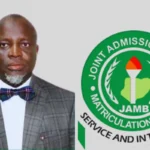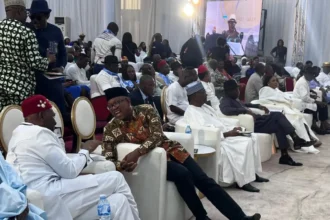Following the state of emergency declared by President Bola Ahmed Tinubu in Rivers State, human rights lawyer Inibehe Effiong has strongly criticized the President, accusing him of violating the Nigerian Constitution. Effiong condemned the decision to withhold statutory allocations to the state and the subsequent appointment of a Sole Administrator, calling it an abuse of power.
The Supreme Court had earlier ruled that Rivers State’s statutory allocations should be withheld due to Governor Siminalayi Fubara’s refusal to recognize the state House of Assembly and present the budget for passage. However, President Tinubu later suspended Governor Fubara, Deputy Governor Ngozi Odu, and the members of the House of Assembly, appointing a Sole Administrator to manage the state’s affairs. Reports now indicate that the withheld funds will be released to the Sole Administrator, a move Effiong described as unconstitutional and politically motivated.
Effiong questioned the legality of the decision, arguing that if the allocations were initially withheld because the governor failed to present the budget to the House, then handing the funds over to a Sole Administrator—who has no constitutional recognition—further undermines the rule of law.
“State funds and allocations cannot be appropriated without being enabled by an Appropriation Law. Sections 120 and 121 of the Constitution are very explicit on this,” Effiong stated, criticizing the federal government’s handling of the situation.
Legal experts and political analysts have also weighed in on the controversy, with many arguing that the appointment of a Sole Administrator does not serve as a constitutional substitute for an elected governor and a functioning legislature.
As the crisis in Rivers State deepens, calls for a legal review of Tinubu’s actions continue to grow, with concerns that the move sets a dangerous precedent for governance and constitutional democracy in Nigeria.


















